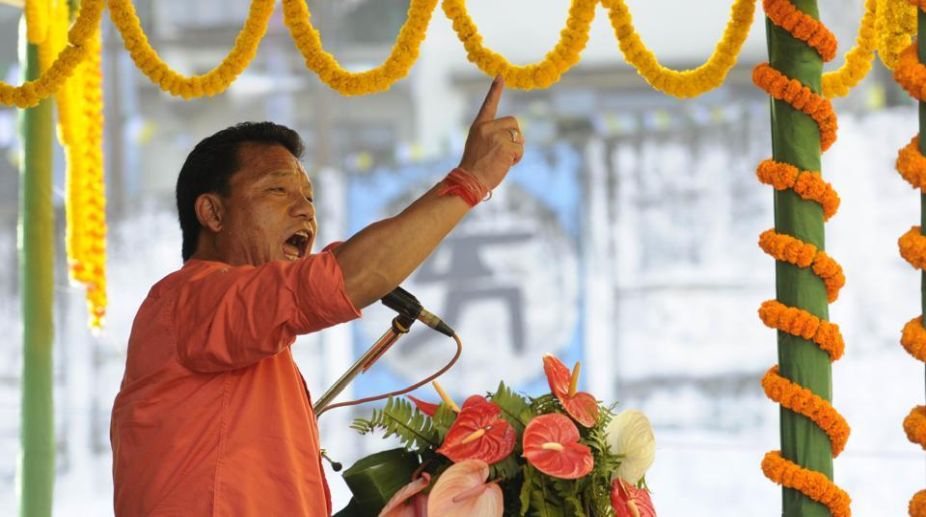The second round of talks between the West Bengal government and the Gorkhas ~ this time in Silguri’s Uttarkanya ~ has not cleared the fog even a wee bit. Let alone the “state of Gorkhaland”, unmistakable is the discord within the Gorkha Jan Mukti Morcha over the calling off of the indefinite strike, which has now extended beyond three months.
Divided as the morcha is on the agitprop, the ferment is bound to linger, at any rate till 16 October, when the third round of negotiations have been scheduled in Kolkata’s Nabanna. It is unlikely that the expelled morcha leader, Binay Tamang’s appeal to end the strike will have an impact in the face of the absconding heavyweight, Bimal Gurung’s renewed pitch for continuing it.
Advertisement
Nor for that matter has his fresh condition for tripartite talks ~ with the participation of the Centre ~ been greeted with even a scintilla of acceptance by the state government or the rival faction. There was, after all, a groundswell of opinion within Darjeeling in favour of the protests, but that position may slowly be changing.
On the face of it, Gurung’s condition seems justified, but only very partly. Considering the critical issue at stake, talks on Darjeeling ought ideally to be held with representatives of the hill parties, the state government, the Centre, leaders of the ruling party, and the leader of the Opposition in the Assembly, if not MPs as well.
By its very nature, statehood must of necessity be a consensual decision. Which makes it imperative for a cross-section of the stakeholders to be present at the talks. A bilateral meeting, therefore, is a wholly inadequate, almost tentative, exercise. Markedly, the Chief Minister is said to be agreeable to several demands raised by the other side last Tuesday.
But these are far removed from the core issue. In the main, the demands relate to the social sector, notably staggered admission to schools and colleges for hill students who had missed the time-frame because of the agitation, a high-level investigation into the recent blasts in Kalimpong, compensation to the bereaved families, and a special allowance for teachers if classes are held in winter to compensate for the disruption in the academic schedule.
Furthermore, state employees who resume duty before the Pujas won’t suffer a break in service, and will even be entitled to a month’s pay as “festival advance”. No less critical are the demands raised by tea garden workers and the Chief Secretary has been directed by the CM to take up the issue with the estate managements.
For all that, the intransigence of Gurung may yet make the waters murkier, not least his proposal to “impose a janta curfew in the next few days”, though he has stopped short of defining the praxis of the movement. The plot thickens.











